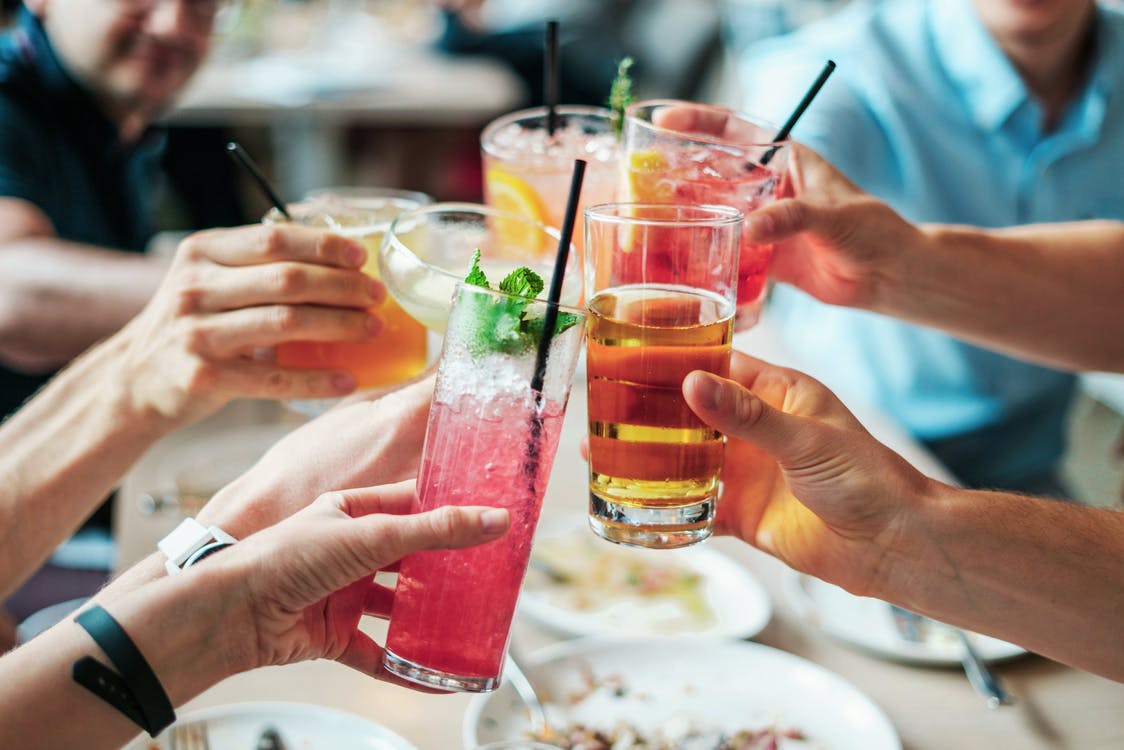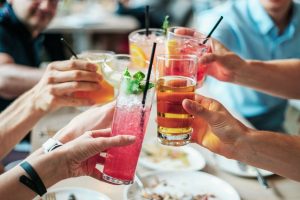
 We hear about fat, carbs, and calories – all culprits that halt weight loss, may cause weight gain, and keep otherwise healthy people from reaching their goal weight. We know that fried and greasy foods are not good for us and affect our waistlines. We are inundated with commercials, emails, and other advertising that tells us we must watch what we eat.
We hear about fat, carbs, and calories – all culprits that halt weight loss, may cause weight gain, and keep otherwise healthy people from reaching their goal weight. We know that fried and greasy foods are not good for us and affect our waistlines. We are inundated with commercials, emails, and other advertising that tells us we must watch what we eat.
But what about what we drink?
According to Kathleen Zelman, RD, MPH, who is the WebMD Weight Loss Clinical Dietician, the average American, on average, consumes approximately 20% of their daily calories through drinks. Some may even consume more, and over time, this adds up to weight gain or a stall in weight loss.
When I was a child, my father always struggled with his weight, and my mother fought him to drink diet sodas. The average soft drink contains approximately 150-200 calories per 12 ounce can, and many people drink two or three sodas per day, or more.
When you consider that the average ham and cheese sandwich on white bread with mustard and lettuce averages about 240 calories, you can see that fullness and hunger satisfaction would be much better eating a ham and cheese sandwich than drinking a can of soda.
Natural fruit juices may be healthy, but drinking an 8 ounce glass of orange juice is equivalent to eating three to four medium sized oranges. If you actually eat an orange instead of drinking orange juice, you will have bulk, which will help you feel fuller.
It is also important to note that there are a lot of juices on the market that are not 100% fruit juice and these juices contain sugar and extra calories added to them, but will do very little to help you feel full. Therefore, you drink a lot of calories, but are still hungry.
When you are hungry, you should eat. When you are thirsty, you should drink, but calories should really not come from your fluids. If you are thirsty, consider drinking non caloric drinks: coffee, water, diet soft drinks, calorie free sodas and sparkling waters, and teas. If you must sweeten your coffee or tea, use a sugar substitute with no calories.
By simply eliminating all drinks from your diet that contain calories, it is estimated that you can lose up to one pound per month without even changing your eating habits at all.
Drinking iced water or cold water before or with a meal will also help you consume less food, burn more energy while digesting (which means burning calories), and can help with weight loss or maintenance as well.
Changing from full fat milk to low fat or skim milk can help you save up to 100 calories per 8 ounce glass. Using skim or low fat milk in your cooking and cereal can also help save calories.
When drinking coffee or tea and using a creamer, select a non-fat, sugar free option, or use skim or low fat milk and a sugar substitute to save calories. Be careful when drinking coffee and tea or caffeine containing drinks if you are trying to lose weight, because caffeine drinks have been shown to spike blood sugar slightly and can cause hunger cravings, resulting in consuming more calories when eating.
Energy drinks might help you wake up or give you a jolt of energy, but most energy drinks that are not sugar free have more calories in them than a can of soda. It’s also been shown that the sugar and energy boost of energy drink may cause you to have a boost at first, but they can cause you to have a slump of energy and feel lethargic a few hours later.
Alcohol contains calories and also breaks down into sugar, and casual consumption of alcohol can cause you to gain weight and have cravings too, so alcohol should be consumed sparingly.
Shakes, smoothies, and yogurt drinks can contain a lot of calories and are usually consumed quickly. There are some diet products that can help reduce calories but still give you a sweet treat – choose non fat, sugar free options for a special treat, but limit the consumption of liquid calories.
When planning a weight loss or maintenance diet for yourself, do not focus solely on the food you consume. Remember, liquids and drinks contain calories too, and eliminating or reducing their consumption may actually help you out of a weight loss slump.
Water is good for you and our bodies need it. Water can help your skin look and feel better, helps your hair be healthier, keeps you hydrated, helps with metabolizing foods, and can help you feel fuller. Consider adding more water to your liquid intake, and reduce other drinks, and you are on your way to a healthier diet.